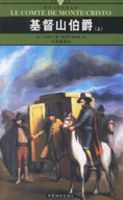“Alas!my very dear brother, I should like to settle down to a better life. I come to you full of contrition, I am penitent.I make my confession.I beat my breast violently.You are quite right in wishing that I should some day become a licentiate and sub-monitor in the college of Torchi.At the present moment I feel a magnificent vocation for that profession.But I have no more ink and I must buy some; I have no more paper, I have no more books, and I must buy some.For this purpose, I am greatly in need of a little money, and I come to you, brother, with my heart full of contrition.”
“Is that all?”
“Yes, ”said the scholar.“A little money.”
“I have none.”
Then the scholar said, with an air which was both grave and resolute:“Well, brother, I am sorry to be obliged to tell you that very fine offers and propositions are being made to me in another quarter. You will not give me any money?No.In that case I shall become a professional vagabond.”
As he uttered these monstrous words, he assumed the mien of Ajax, expecting to see the lightnings descend upon his head.
The archdeacon said coldly to him, —
“Become a vagabond.”
Jehan made him a deep bow, and descended the cloister stairs, whistling.
At the moment when he was passing through the courtyard of the cloister, beneath his brother's window, he heard that window open, raised his eyes and beheld the archdeacon's severe head emerge.
“Go to the devil!”said Dom Claude; “here is the last money which you will get from me?”
At the same time, the priest flung Jehan a purse, which gave the scholar a big bump on the forehead, and with which Jehan retreated, both vexed and content, like a dog who had been stoned with marrow bones.
Chapter3 Long Live Mirth
The reader has probably not forgotten that a part of the Cour de Miracles was enclosed by the ancient wall which surrounded the city, a goodly number of whose towers had begun, even at that epoch, to fall to ruin. One of these towers had been converted into a pleasure resort by the vagabonds.There was a drain-shop in the underground story, and the rest in the upper stories.This was the most lively, and consequently the most hideous, point of the whole outcast den.It was a sort of monstrous hive, which buzzed there night and day.At night, when the remainder of the beggar horde slept, when there was no longer a window lighted in the dingy fa?ades of the Place, when not a cry was any longer to be heard proceeding from those innumerable families, those ant-hills of thieves, of wenches, and stolen or bastard children, the merry tower was still recognizable by the noise which it made, by the scarlet light which, flashing simultaneously from the air-holes, the windows, the fissures in the cracked walls, escaped, so to speak, from its every pore.
The cellar then, was the dram-shop. The descent to it was through a low door and by a staircase as steep as a classic Alexandrine.Over the door, by way of a sign there hung a marvellous daub, representing new sons and dead chickens, with this, pun below:Aux sonneurs pour les trépassés, —The wringers for the dead.
One evening when the curfew was sounding from all the belfries in Paris, the sergeants of the watch might have observed, had it been granted to them to enter the formidable Court of Miracles, that more tumult than usual was in progress in the vagabonds' tavern, that more drinking was being done, and louder swearing.Outside in the Place, there, were many groups conversing in low tones, as when some great plan is being framed, and here and there a knave crouching down engaged in sharpening a villanous iron blade on a paving-stone.
Meanwhile, in the tavern itself, wine and gaming offered such a powerful diversion to the ideas which occupied the vagabonds'lair that evening, that it would have been difficult to divine from the remarks of the drinkers, what was the matter in hand. They merely wore a gayer air than was their wont, and some weapon could be seen glittering between the legs of each of them, —a sickle, an axe, a big two-edged sword or the hook of an old hackbut.
The room, circular in form, was very spacious; but the tables were so thickly set and the drinkers so numerous, that all that the tavern contained, men, women, benches, beer-jugs, all that were drinking, all that were sleeping, all that were playing, the well, the lame, seemed piled up pell-mell, with as much order and harmony as a heap of oyster shells. There were a few tallow dips lighted on the tables; but the real luminary of this tavern, that which played the part in this dram-shop of the chandelier of an opera house, was the fire.This cellar was so damp that the fire was never allowed to go out, even in midsummer; an immense chimney with a sculptured mantel, all bristling with heavy iron andirons and cooking utensils, with one of those huge fires of mixed wood and peat which at night, in village streets make the reflection of forge windows stand out so red on the opposite walls.A big dog gravely seated in the ashes was turning a spit loaded with meat before the coals.
Great as was the confusion, after the first glance one could distinguish in that multitude, three principal groups which thronged around three personages already known to the reader.One of these personages, fantastically accoutred in many an oriental rag, was Mathias Hungadi Spicali, Duke of Egypt and Bohemia.The knave was seated on a table with his legs crossed, and in a loud voice was bestowing his knowledge of magic, both black and white, on many a gaping face which surrounded him.Another rabble pressed close around our old friend, the valiant King of Thunes, armed to the teeth.Clopin Trouillefou, with a very serious air and in a low voice, was regulating the distribution of an enormous cask of arms, which stood wide open in front of him and from whence poured out in profusion, axes, swords, bassinets, coats of mail, broadswords, lance-heads, arrows, and viretons, like apples and grapes from a horn of plenty.Every one took something from the cask, one a morion, another a long, straight sword, another a dagger with a cross-shaped hilt. The very children were arming themselves, and there were even cripples in bowls who, in armor and cuirass, made their way between the legs of the drinkers, like great beetles.
Finally, a third audience, the most noisy, the most jovial, and the most numerous, encumbered benches and tables, in the midst of which harangued and swore a flute-like voice, which escaped from beneath a heavy armor, complete from casque to spurs. The individual who had thus screwed a whole outfit upon his body, was so hidden by his warlike accoutrements that nothing was to be seen of his person save an impertinent, red, snub nose, a rosy mouth, and bold eyes.His belt was full of daggers and poniards, a huge sword on his hip, a rusted cross-bow at his left, and a vast jug of wine in front of him, without reckoning on his right, a fat wench with her bosom uncovered.All mouths around him were laughing, cursing, and drinking.
Add twenty secondary groups, the waiters, male and female, running with jugs on their heads, gamblers squatting over taws, merelles, dice, vachettes, the ardent game of tringlet, quarrels in one corner, kisses in another, and the reader will have some idea of this whole picture, over which flickered the light of a great, flaming fire, which made a thousand huge and grotesque shadows dance over the walls of the drinking shop.
As for the noise, it was like the inside of a bell at full peal.
The dripping-pan, where crackled a rain of grease, filled with its continual sputtering the intervals of these thousand dialogues, which intermingled from one end of the apartment to the other.
In the midst of this uproar, at the extremity of the tavern, on the bench inside the chimney, sat a philosopher meditating with his feet in the ashes and his eyes on the brands. It was Pierre Gringoire.
“Be quick!make haste, arm yourselves!we set out on the march in an hour!”said Clopin Trouillefou to his thieves.
A wench was humming, —
“Father and mother, good-night;
The latest up rake the fire.”
Two card players were disputing, —
“Knave!”cried the reddest faced of the two, shaking his fist at the other; “I'll mark you with the club. You can take the place of Mistigri in the pack of cards of monseigneur the king.”
“Ugh!”roared a Norman, recognizable by his nasal accent; “we are packed in here like the saints of Caillouville!”
“My sons, ”the Duke of Egypt was saying to his audience, in a falsetto voice, “sorceresses in France go to the witches'sabbath without broomsticks, or grease, or steed, merely by means of some magic words. The witches of Italy always have a buck waiting for them at their door.All are bound to go out through the chimney.”
The voice of the young scamp armed from head to foot, dominated the uproar.
“Hurrah!hurrah!”he was shouting.“My first day in armor!Outcast!I am an outcast.Give me something to drink.My friends, my name is Jehan Frollo du Moulin, and I am a gentleman.My opinion is that if God were a gendarme, he would turn robber.Brothers, we are about to set out on a fine expedition.Lay siege to the church, burst in the doors, drag out the beautiful girl, save her from the judges, save her from the priests, dismantle the cloister, burn the bishop in his palace—all this we will do in less time than it takes for a burgomaster to eat a spoonful of soup.Our cause is just, we will plunder Notre-Dame and that will be the end of it.We will hang Quasimodo.Do you know Quasimodo, ladies?Have you seen him make himself breathless on the big bell on a grand Pentecost festival!By Beelzebub's horns, it is very fine!One would say he was a devil mounted on a man.
Listen to me, my friends; I am a vagabond to the bottom of my heart, I am a member of the slang thief gang in my soul, I was born an independent thief.I have been rich, and I have devoured all my property.My mother wanted to make an officer of me; my father, a sub-deacon; my aunt, a councillor of inquests; my grandmother, prothonotary to the king; my great aunt, a treasurer of the short robe, —and I have made myself an outcast.I said this to my father, who spit his curse in my face; to my mother, who set to weeping and chattering, poor old lady, like yonder fagot on the and-irons.Long live mirth!I am a real Bicêtre.Waitress, my dear, more wine.I have still the wherewithal to pay.I want no more Surène wine.It distresses my throat. I'd as lief, corboeuf!gargle my throat with a basket.”
Meanwhile, the rabble applauded with shouts of laughter; and seeing that the tumult was increasing around him, the scholar cried, —.
“Oh!what a fine noise!Populi debacchantis populosa debacchatio!”Then he began to sing, his eye swimming in ecstasy, in the tone of a canon intoning vespers, Quoe cantica!quoe organa!quoe cantilenoe!quoe meloclioe hic sine fine decantantur!Sonant melliflua hymnorum organa, suavissima angelorum melodia, cantica canticorum mira!He broke off:“Tavern-keeper of the devil, give me some supper!”
There was a moment of partial silence, during which the sharp voice of the Duke of Egypt rose, as he gave instructions to his Bohemians.
“The weasel is called Adrune; the fox, Blue-foot, or the Racer of the Woods; the wolf, Gray-foot, or Gold-foot; the bear the Old Man, or Grandfather. The cap of a gnome confers invisibility, and causes one to behold invisible things.Every toad that is baptized must be clad in red or black velvet, a bell on its neck, a bell on its feet.The godfather holds its head, the godmother its hinder parts.'Tis the demon Sidragasum who hath the power to make wenches dance stark naked.”
“By the mass!”interrupted Jehan, “I should like to be the demon Sidragasum.”
Meanwhile, the vagabonds continued to arm themselves and whisper at the other end of the dram-shop.
“That poor Esmeralda!”said a Bohemian.“She is our sister. She must be taken away from there.”
“Is she still at Notre-Dame?”went on a merchant with the appearance of a Jew.
“Yes, pardieu!”
“Well!comrades!”exclaimed the merchant, “to Notre-Dame!So much the better, since there are in the chapel of Saints Féréol and Ferrution two statues, the one of John the Baptist, the other of Saint-Antoine, of solid gold, weighing together seven marks of gold and fifteen estellins; and the pedestals are of silver-gilt, of seventeen marks, five ounces.I know that; I am a goldsmith.”
Here they served Jehan with his supper.As he threw himself back on the bosom of the wench beside him, he exclaimed, —
“By Saint Voult-de-Lucques, whom people call Saint Goguelu, I am perfectly happy. I have before me a fool who gazes at me with the smooth face of an archduke.Here is one on my left whose teeth are so long that they hide his chin.And then, I am like the Marshal de Gi?at the siege of Pontoise, I have my right resting on a hillock.Ventre-Mahom!Comrade!you have the air of a merchant of tennis-balls; and you come and sit yourself beside me!I am a nobleman, my friend!Trade is incompatible with nobility.Get out of that!Hola h?You others, don't fight!What, Baptiste Croque-Oison, you who have such a fine nose are going to risk it against the big fists of that lout!Fool!Non cuiquam datum est habere nasum—not every one is favored with a nose.You are really divine, Jacqueline Ronge-Oreille!'tis a pity that you have no hair!Hol?my name is Jehan Frollo, and my brother is an archdeacon.May the devil fly off with him!All that I tell you is the truth.In turning vagabond, I have gladly renounced the half of a house situated in paradise, which my brother had promised me.Dimidiam domum in paradiso.I quote the text.I have a fief in the Rue Tirechappe, and all the women are in love with me, as true as Saint Eloy was an excellent goldsmith, and that the five trades of the good city of Paris are the tanners, the tawers, the makers of cross-belts, the purse-makers, and the sweaters, and that Saint Laurent was burnt with eggshells.I swear to you, comrades.
“Que je ne beuvrai de piment,
Devant un an, si je cy ment.”
“'Tis moonlight, my charmer; see yonder through the window how the wind is tearing the clouds to tatters!Even thus will I do to your gorget.—Wenches, wipe the children's noses and snuff the candles.—Christ and Mahom!What am I eating here, Jupiter?Oh?innkeeper!the hair which is not on the heads of your hussies one finds in your omelettes. Old woman!I like bald omelettes.May the devil confound you!—A fine hostelry of Beelzebub, where the hussies comb their heads with the forks!
“Et je n'ai moi,
Par la sang-Dieu!
Ni foi, ni loi,
Ni feu, ni lieu,
Ni roi,
Ni Dieu.”
In the meantime, Clopin Trouillefou had finished the distribution of arms. He approached Gringoire, who appeared to be plunged in a profound revery, with his feet on an andiron.
“Friend Pierre, ”said the King of Thunes, “what the devil are you thinking about?”
Gringoire turned to him with a melancholy smile.
“I love the fire, my dear lord. Not for the trivial reason that fire warms the feet or cooks our soup, but because it has sparks.Sometimes I pass whole hours in watching the sparks.I discover a thousand things in those stars which are sprinkled over the black background of the hearth.Those stars are also worlds.”
“Thunder, if I understand you!”said the outcast.“Do you know what o'clock it is?”
“I do not know, ”replied Gringoire.
Clopin approached the Duke of Egypt.
“Comrade Mathias, the time we have chosen is not a good one. King Louis XI.is said to be in Paris.”
“Another reason for snatching our sister from his claws, ”replied the old Bohemian.
“You speak like a man, Mathias, ”said the King of Thunes.“Moreover, we will act promptly. No resistance is to be feared in the church.The canons are hares, and we are in force.The people of the parliament will be well balked to-morrow when they come to seek her!Guts of the pope I don't want them to hang the pretty girl!”
Chopin quitted the dram-shop.
Meanwhile, Jehan was shouting in a hoarse voice:
“I eat, I drink, I am drunk, I am Jupiter!Eh!Pierre, the Slaughterer, if you look at me like that again, I'll fillip the dust off your nose for you.”
Gringoire, torn from his meditations, began to watch the wild and noisy scene which surrounded him, muttering between his teeth:“Luxuriosa res vinum et tumultuosa ebrietas.Alas!what good reason I have not to drink, and how excellently spoke Saint-Benoit:'Vinum apostatare facit etiam sapientes!”
At that moment, Clopin returned and shouted in a voice of thunder:“Midnight!”
At this word, which produced the effect of the call to boot and saddle on a regiment at a halt, all the outcasts, men, women, children, rushed in a mass from the tavern, with great noise of arms and old iron implements.
The moon was obscured.
The Cour des Miracles was entirely dark. There was not a single light.One could make out there a throng of men and women conversing in low tones.They could be heard buzzing, and a gleam of all sorts of weapons was visible in the darkness.Clopin mounted a large stone.
“To your ranks, Argot!”he cried.“Fall into line, Egypt!Form ranks, Galilee!”
A movement began in the darkness. The immense multitude appeared to form in a column.After a few minutes, the King of Thunes raised his voice once more, —
“Now, silence to march through Paris!The password is, 'Little sword in pocket!'The torches will not be lighted till we reach Notre-Dame!Forward, march!”
Ten minutes later, the cavaliers of the watch fled in terror before a long procession of black and silent men which was descending towards the Pont an Change, through the tortuous streets which pierce the close-built neighborhood of the markets in every direction.
Chapter4 An Awkward Friend
That night, Quasimodo did not sleep. He had just made his last round of the church.He had not noticed, that at the moment when he was closing the doors, the archdeacon had passed close to him and betrayed some displeasure on seeing him bolting and barring with care the enormous iron locks which gave to their large leaves the solidity of a wall.Dom Claude's air was even more preoccupied than usual.Moreover, since the nocturnal adventure in the cell, he had constantly abused Quasimodo, but in vain did he ill treat, and even beat him occasionally, nothing disturbed the submission, patience, the devoted resignation of the faithful bellringer.He endured everything on the part of the archdeacon, insults, threats, blows, without murmuring a complaint.At the most, he gazed uneasily after Dom Claude when the latter ascended the staircase of the tower; but the archdeacon had abstained from presenting himself again before the gypsy's eyes.
On that night, accordingly, Quasimodo, after having cast a glance at his poor bells which he so neglected now, Jacqueline, Marie, and Thibauld, mounted to the summit of the Northern tower, and there setting his dark lanturn, well closed, upon the leads, he began to gaze at Paris. The night, as we have already said, was very dark.Paris which, so to speak was not lighted at that epoch, presented to the eye a confused collection of black masses, cut here and there by the whitish curve of the Seine.Quasimodo no longer saw any light with the exception of one window in a distant edifice, whose vague and sombre profile was outlined well above the roofs, in the direction of the Porte Sainte-Antoine.There also, there was some one awake.
As the only eye of the bellringer peered into that horizon of mist and night, he felt within him an inexpressible uneasiness. For several days he had been upon his guard.He had perceived men of sinister mien, who never took their eyes from the young girl's asylum, prowling constantly about the church.He fancied that some plot might be in process of formation against the unhappy refugee.He imagined that there existed a popular hatred against her, as against himself, and that it was very possible that something might happen soon.Hence he remained upon his tower on the watch, “dreaming in his dream-place, ”as Rabelais says, with his eye directed alternately on the cell and on Paris, keeping faithful guard, like a good dog, with a thousand suspicions in his mind.
All at once, while he was scrutinizing the great city with that eye which nature, by a sort of compensation, had made so piercing that it could almost supply the other organs which Quasimodo lacked, it seemed to him that there was something singular about the Quay de la Vieille-Pelleterie, that there was a movement at that point, that the line of the parapet, standing out blackly against the whiteness of the water was not straight and tranquil, like that of the other quays, but that it undulated to the eye, like the waves of a river, or like the heads of a crowd in motion.
This struck him as strange. He redoubled his attention.The movement seemed to be advancing towards the City.There was no light.It lasted for some time on the quay; then it gradually ceased, as though that which was passing were entering the interior of the island; then it stopped altogether, and the line of the quay became straight and motionless again.
At the moment when Quasimodo was lost in conjectures, it seemed to him that the movement had re-appeared in the Rue du Parvis, which is prolonged into the city perpendicularly to the front of Notre-Dame. At length, dense as was the darkness, he beheld the head of a column debouch from that street, and in an instant a crowd—of which nothing could be distinguished in the gloom except that it was a crowd—spread over the Place.
This spectacle had a terror of its own.It is probable that this singular procession, which seemed so desirous of concealing itself under profound darkness, maintained a silence no less profound.Nevertheless, some noise must have escaped it, were it only a trampling.But this noise did not even reach our deaf man, and this great multitude, of which he saw hardly anything, and of which he heard nothing, though it was marching and moving so near him, produced upon him the effect of a rabble of dead men, mute, impalpable, lost in a smoke. It seemed to him, that he beheld advancing towards him a fog of men, and that he saw shadows moving in the shadow.
Then his fears returned to him, the idea of an attempt against the gypsy presented itself once more to his mind. He was conscious, in a confused way, that a violent crisis was approaching.At that critical moment he took counsel with himself, with better and prompter reasoning than one would have expected from so badly organized a brain.Ought he to awaken the gypsy?to make her escape?Whither?The streets were invested, the church backed on the river.No boat, no issue!—There was but one thing to be done; to allow himself to be killed on the threshold of Notre-Dame, to resist at least until succor arrived, if it should arrive, and not to trouble la Esmeralda's sleep.This resolution once taken, he set to examining the enemy with more tranquillity.















